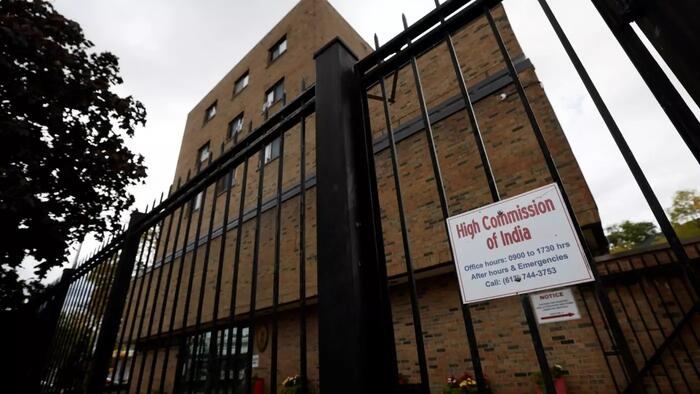On October 9, 2023, Canada expelled six senior Indian diplomats, including Sanjay Kumar Verma, India’s High Commissioner, as part of an ongoing investigation into the murder of Hardeep Singh Nijjar, a Sikh separatist leader assassinated in June 2023 in Vancouver. The Canadian government labeled the expelled officials as “persons of interest” in the case, suggesting their involvement in a broader criminal network linked to threats and violence against Sikh separatists residing in Canada. The assassination had resulted in the arrest of three Indian nationals, igniting a diplomatic crisis when Canadian Prime Minister Justin Trudeau accused the Indian government of orchestrating the killing, a claim that New Delhi vehemently denied. This diplomatic spat showcases escalating tensions between the two countries, raising concerns about the stability of their bilateral relations.
In his announcement, Trudeau indicated that the decision to expel the diplomats followed extensive investigations by the Royal Canadian Mounted Police (RCMP). They provided the Canadian government with “ample, clear and concrete evidence” concerning the alleged involvement of the Indian officials in organized criminal activity, extortion, and even homicide aimed at South Asian communities in Canada. India’s government reacted strongly, dismissing Trudeau’s assertions as born from a political agenda and claimed it had lost confidence in Canada’s willingness to guarantee the safety of its diplomats in the country. This backlash prompted India to reciprocate by expelling six Canadian diplomats, intensifying the diplomatic row further.
The heightened diplomatic tensions come at a time when Canada hosts a significant Indian diaspora, home to nearly two million individuals with roughly 36 percent being Sikhs. The concentration of this community, particularly in Ontario and British Columbia, strengthens the importance of the issue, as many individuals within these regions are influenced by the ongoing clashes regarding separatist movements. Canada’s law enforcement agencies have reportedly amassed substantial evidence of what they characterize as a wide-reaching campaign by the Indian government to silence dissenting voices within the Sikh community, suggesting that the assassination of Nijjar may form part of a larger strategy to intimidate Indian nationals abroad.
In a statement emphasizing Canada’s position, Trudeau remarked that the Indian government had made a grave error in allegedly characterizing Canada as a site for criminal operations against its citizens. His comments underscore a firm commitment by the Canadian government not to tolerate foreign interference and violence against its nationals. Trudeau positioned Canada as a defender of its citizens’ rights and security, defending the expulsions as necessary actions to counteract the threats posed by the Indian government to individuals living in Canada who are critical of its policies, especially concerning Sikh separatism.
Adding fuel to the fire, U.S. authorities recently unveiled details about a separate assassination plot involving an Indian national in New York. Nikhil Gupta was charged with attempting to hire an undercover agent posing as a hitman to execute Gurpatwant Singh Pannun, a prominent Sikh activist in the U.S., allegedly hired by an unnamed official in India. This indictment coincided with the assassination of Nijjar, suggesting a pattern of coordinated efforts by Indian officials to target dissenters overseas. This incident marks a significant and alarming incident of foreign direct involvement in potential domestic violence on U.S. soil, raising concerns about international law, security agreements, and the implications for diplomacy between India, the U.S., and Canada.
The broader implications of these diplomatic cuts suggest a potential deterioration of relationships among these nations. The allegations and reciprocal expulsions may instigate increased scrutiny and mistrust among diplomatic posts, particularly with regards to how nations approach sensitive issues such as national security and human rights. With the Indian government refuting the allegations of wrongdoing and claiming that it is being unfairly targeted, it remains uncertain how these developments could affect the dynamics of governance and diplomacy moving forward. Defending national sovereignty and protecting citizens abroad could lead to significant shifts in international diplomatic policies and realignment among countries with significant diaspora populations, creating a complex landscape for future international relations.

